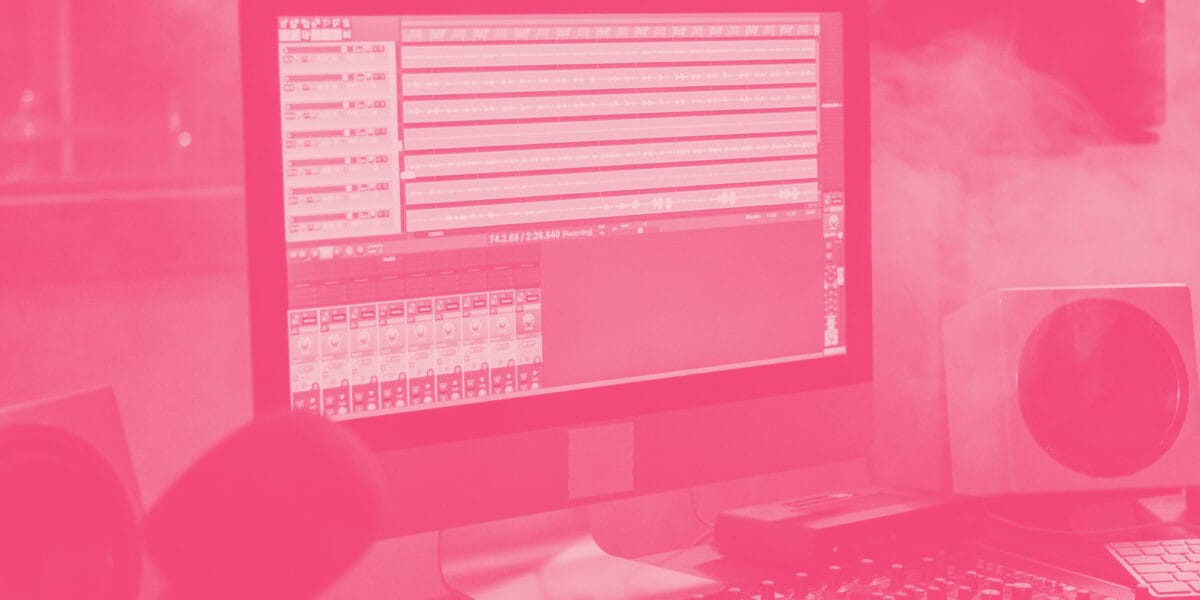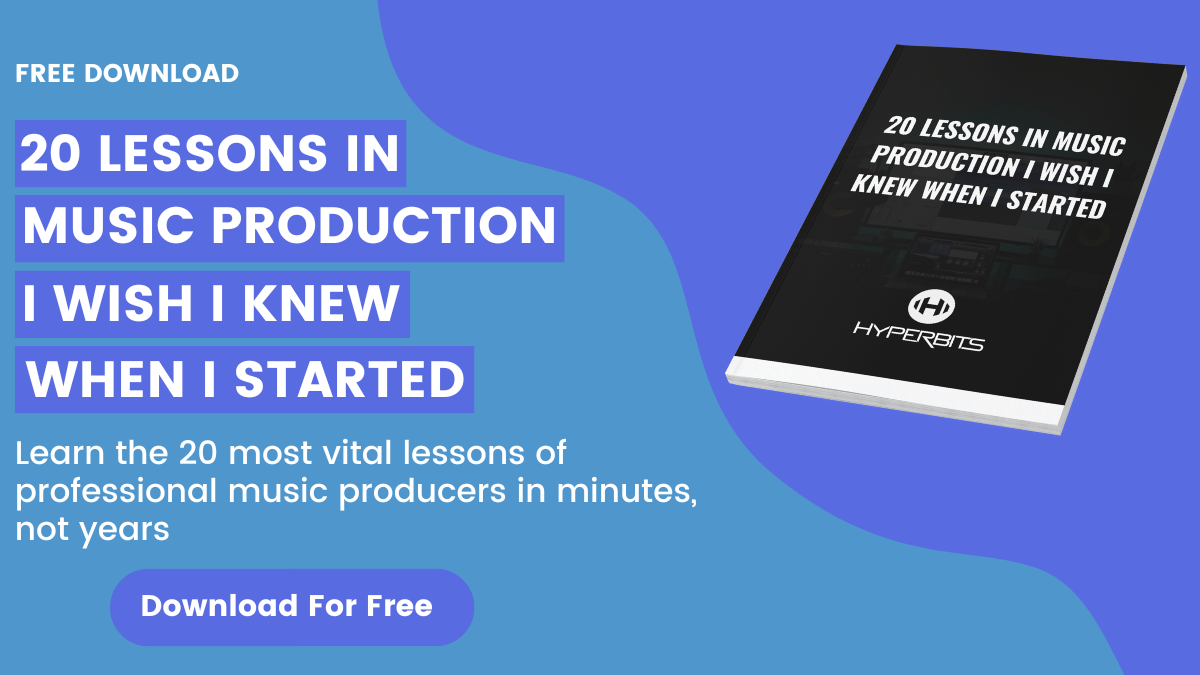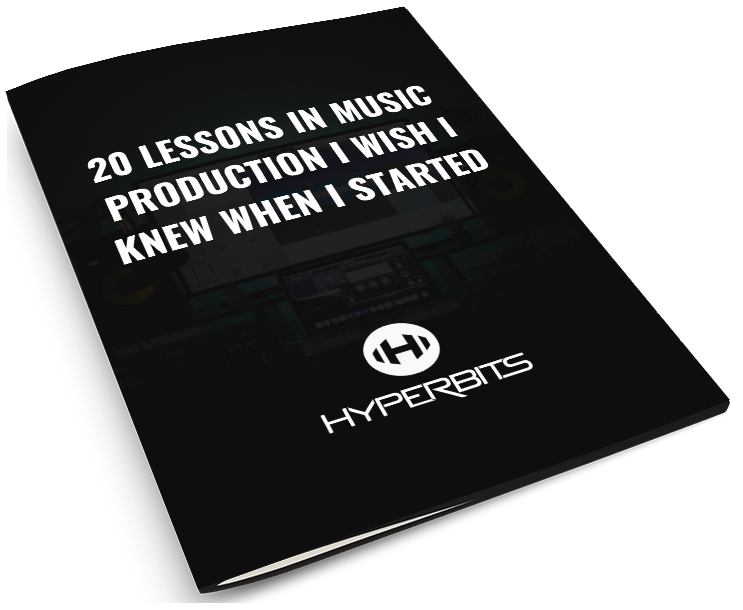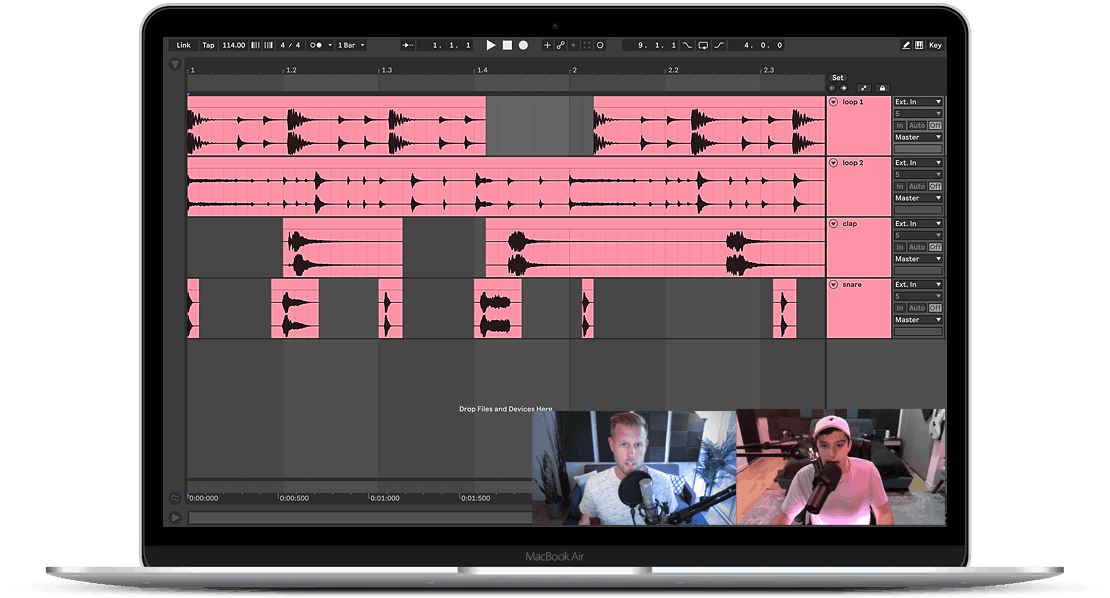Ghost Production: The End All Be All Guide
“Believe you can, and you're halfway there.”
— Theodore Roosevelt
Ahhh, ghost production. Sounds mysterious, right? Well, that's because it is. Behind-the-scenes producers cranking out huge hits while laying low — it's the unseen side of this mad, crazy industry.
Is it worth it? Is it unethical? While ghost production has never been my main squeeze, I've made tens of thousands of dollars doing this on the side, with minimal effort.
At its core, ghost production is the result of increased demand for music.
Professionals in the industry have trouble keeping up and as a result, a unique phenomenon emerged to fill this gap - the ghost producer.
These elusive figures work their magic behind the scenes, creating chart-topping hits and shaping the sound of popular artists, all while remaining anonymous. But how does ghost production work, and how can you become one?
In this article, we'll delve deeper into the world of ghost music production, uncovering the secrets behind these enigmatic figures and providing practical tips for aspiring ghost producers.
So whether you dream of crafting hits from the shadows or simply want to gain insights into this intriguing aspect of the music industry, this article is a must-read.
What is Ghost Music Production?
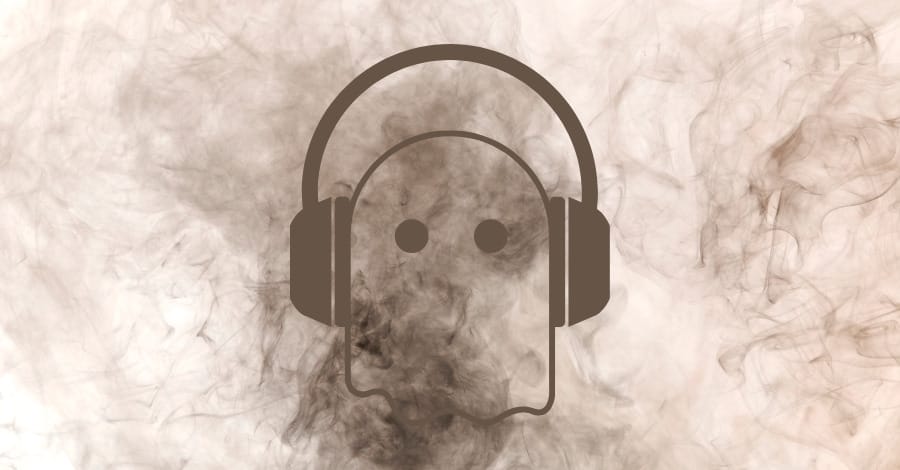
Ghost music production refers to the practice of hiring anonymous or uncredited music producers to create tracks on behalf of an artist or record label. These ghost producers work behind the scenes, crafting melodies, beats, and overall production elements without receiving public recognition for their contributions.
Their role in the music industry is significant, as they play a crucial part in shaping the sound and success of many popular songs and albums.
Artists often hire ghost producers as it allows them to focus on their strengths as performers or lyricists while leaving the technical and creative aspects to other experts. Ghost producers bring specific knowledge and/or experience to the table, enabling artists to achieve a higher level of sonic quality in their music.
Some artists may lack the time, resources, or technical expertise required to produce professional-grade tracks at the scale they need, making the assistance of a ghost producer invaluable.
However, there are drawbacks to ghost music production. The anonymity of ghost producers means they miss out on public recognition for their work, which can be demotivating for some talented individuals.
Additionally, the practice raises questions about authenticity and artistic integrity, as fans may feel deceived when they discover that their favorite artists rely heavily on ghost producers.
There is also a risk of exploitation and underpayment for ghost producers, as their work may be undervalued or overlooked in terms of proper credits and compensation.
Is Being a Ghost Producer Worth It?

The work of ghost producers is often shrouded in mystery and hidden from the public eye. Aspiring music producers may wonder if pursuing a career as a ghost producer is worth it. Like any career path, there are pros and cons to consider.
The Pros to Consider
One of the primary advantages of being a ghost producer is the opportunity to work with high-profile artists and industry professionals.
You have the chance to collaborate with established musicians, contribute to chart-topping tracks, and gain valuable industry connections. This exposure can open doors and lead to further opportunities for your career.
Another advantage is the creative freedom that ghost production can offer. While working behind the scenes, you have the opportunity to experiment with different genres, styles, and techniques without the pressure of personal branding.
Ghost production allows you to focus solely on your craft, exploring new sounds and pushing boundaries without the constraints of your own artist image.
Financially, ghost production can be lucrative. You are often compensated for your work through a fee or royalty agreement. Royalties can provide a stable income stream, especially if you have the opportunity to work with successful artists who generate substantial revenue from their music.
Plus, being a ghost producer allows you to avoid the expenses and risks associated with self-promotion and marketing as an individual artist.
The Cons to Consider
However, there are some potential downsides to consider. One of the main challenges of being a ghost producer is the lack of public recognition. Your work may be heard and enjoyed by millions, but you won't receive credit or acclaim for your contributions.
For some producers, this lack of visibility can be disheartening, especially if they aspire to have their own artistic career or desire recognition for their creative efforts.
Ghost production can also sometimes lead to a loss of creative control. As a ghost producer, you are tasked with bringing the artist's vision to life, which may involve compromising your own artistic preferences.
This can be a double-edged sword, as on one hand, it allows you to develop versatile skills and adaptability, but on the other hand, it may restrict your ability to fully express your own artistic voice.
Ghost Production is Up To You
Ultimately, whether being a ghost producer is worth it depends on your personal goals, aspirations, and artistic preferences. It can provide financial stability, networking opportunities, and creative freedom, but it comes at the cost of anonymity and potentially sacrificing control over your creative output.
It's essential to weigh these factors and consider how they align with your long-term career objectives in the music industry.
In the end, being a ghost producer can be a stepping stone towards building a successful career in music production, allowing you to develop your skills, gain industry experience, and establish valuable connections.
Remain mindful of your own artistic aspirations and to find a balance that aligns with your personal goals and creative vision.
Controversies

Ghost production has not been without its controversies and scandals. One notable instance involved DJ and producer Maarten Vorwerk. Martin gained recognition for his ghost production work with several well-known artists like Dimitri Vegas and Like Mike.
While some criticized Vorwerk’s artists for not receiving proper credit for his contributions, others argued that ghost production is an accepted practice in the industry.
This controversy sparked debates about the ethics and transparency surrounding ghost production and prompted discussions on how to appropriately acknowledge the creative input of ghost producers.
Ghost Production is Becoming More Accepted
The public perception of ghost music production has evolved over time. Initially, a general lack of awareness about ghost production led to misconceptions and skepticism among fans. However, as artists started discussing it openly, the public perception shifted.
Many listeners now recognize that ghost production can be a collaborative and legitimate process that involves bringing an artist's vision to life.
The industry response has also adapted to ghost production. Some labels and artists have implemented more transparent practices, crediting ghost producers or openly collaborating with them.
Additionally, there has been a growing acceptance and appreciation for the role of ghost producers in the creative process.
However, challenges and controversies remain, particularly in maintaining transparency and ensuring fair recognition for ghost producers' work.
Ethics and Transparency in Ghost Production

While ghost production offers opportunities for collaboration and artistic growth, it also raises ethical questions regarding the credibility and authenticity of artists. It is crucial to delve into these issues and advocate for a more transparent approach within the industry.
One of the main ethical concerns in ghost production revolves around the artist's credibility. Artists using ghost producers without disclosing their involvement can create a perception of deception or misrepresentation.
Fans and listeners often associate an artist's work with their personal creative input. If it becomes known that an artist relies heavily on ghost production, it may raise doubts about their authenticity and undermine their integrity.
Transparency is key in addressing these concerns.
Open discussions about ghost production and its role in the music industry can help grow fans’ understanding and help set expectations.
Artists should consider being transparent with their fans and audience about their involvement with ghost producers.
By openly acknowledging and giving credit to ghost producers, artists can maintain trust and authenticity while also appreciating the creative contributions of these professionals.
Transparency benefits the ghost producers themselves. Allowing them to be recognized for their work opens doors for opportunities for them within the industry.
It helps showcase their talent behind the scenes and acknowledges ghost producers' significant role in shaping the music we love. It’s a collective effort from artists, labels, and industry professionals to promote ethics and transparency in ghost music production.
Initiatives such as clear contractual agreements, proper crediting, and open discussions can create a more transparent environment. This approach safeguards an artist's credibility and fosters a healthier ecosystem for all involved in the music-making process.
Ghost Production vs. Non-Billed Collaboration
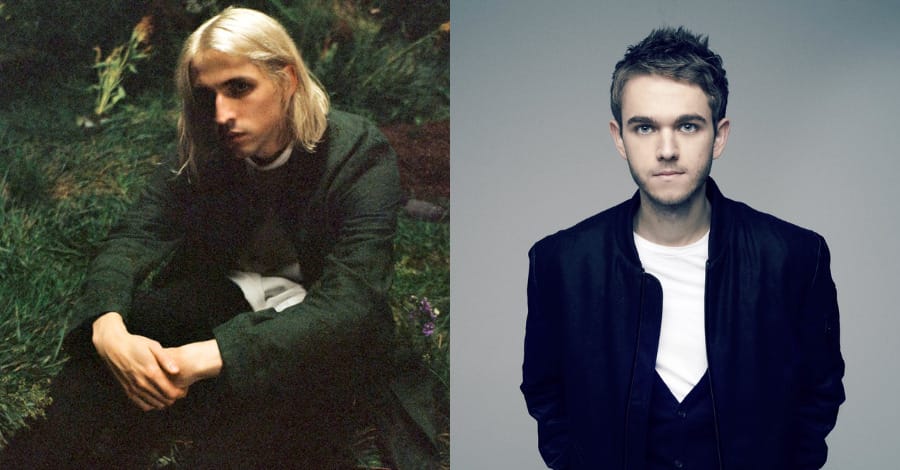
As we mentioned before, ghost production refers to the practice of hiring a skilled producer to create music on behalf of an artist who takes credit for the final product. On the other hand, non-billed collaboration involves artists working together to create music without one party being concealed.
In this scenario, all collaborators receive due credit for their contributions. Non-billed collaborations often lead to the formation of dynamic partnerships, where multiple artistic voices blend to create a cohesive musical experience.
For example, Porter Robinson worked with Zedd on the song “Clarity.” As Porter has said publicly, “Clarity” started out as a collaboration between the two artists. At the end of the project, Porter and Zedd loved the hit they had created.
However, Porter expressed that the track's sound didn’t fit his overall creative vision for “Porter Robinson” as an art project. So he decided not to be named as a main contributor to the song. Thus, the song was released as “Zedd - Clarity ft. Foxes.”
When the song won a Grammy, Porter Robinson also won one with Zedd. If Zedd had hired Porter as a ghost producer, the arrangement would have been different.
We likely would have never known that Porter Robinson was one of the talents behind that great song.
The Artists Decide
Ultimately, the choice between ghost production and non-billed collaboration depends on the preferences and goals of the artists involved. Factors such as creative control, credit allocation, and the desired level of involvement in the production process should be considered.
Some artists may prefer the efficiency and expertise that ghost production offers, while others may value the openness and shared recognition of non-billed collaborations.
In the end, what matters most is that artists find a working arrangement that aligns with their artistic vision and allows them to create music that resonates with their audience.
Famous Ghost Producers
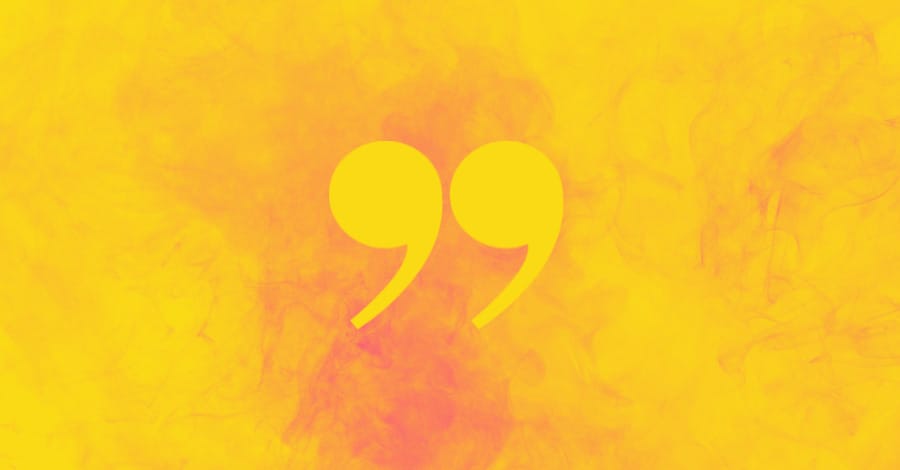
Believe it or not, there are quite a few big names that support ghost production. They have either been ghost producers themselves or recruited ghost producers for their own productions.
Here are some artists who have been involved in ghost production and what they have said publicly about it:
Dimitri Vegas & Like Mike:
- “There seems to be a lot of confusion around the topic. Sometimes artists get help in mixing, songwriting or additional production; it’s not exclusive to electronic music or any other genre for that matter. Ultimately, if that extra pair of hands makes the final sound of the record better, then it’s in everybody’s best interest to go down that avenue. But what’s important is clarity around how that collaboration works, and everybody involved properly credited and paid for their efforts.”
David Guetta:
- “There’s a big difference between having ‘ghost producers’ or working as a team. It’s totally cool to work as a team, and everyone should be credited. And paid. A bit like being in a band.”
W&W:
- “Mixed feelings. Of course, it kind of takes away some integrity of an artist, but being a good producer is by far not the only aspect of being a great artist or a great DJ.”
Dash Berlin:
- “I work together with other producers all the time, and I am very open about it. What others do is their decision.”
R3hab:
- “Everybody should be credited, but I also feel that this is a totally overhyped and exaggerated phenomenon. I love collaborating with talented people and getting inspired, so if you want to work together and you credit the person, great!”
KSHMR:
- “I think it’s acceptable to get help. Ultimately, it is up to the artists to decide when they are no longer being honest with their listeners.”
Nervo:
- “We started off as ghostwriters and used this as a platform to launch our own careers when the time was right for us to become artists. We are all for collaborating but there has to come a point in time when the ghost producer gets their glory (if they want this).”
Fluxx Pavilion:
- “A DJ is different to a producer, so the fact that a person who is good at one thing asks another person who is good at another thing to do something doesn’t surprise me.”
The Role of Ghost Producers

Okay, so you’ve decided to ghost produce for someone. Now let’s take a look at what some of your roles and responsibilities could be…
1. Music Production Expertise
Ghost producers are responsible for creating and producing high-quality music tracks. This includes composing melodies, designing soundscapes, programming beats, arranging song structures, and ensuring the overall sonic cohesion of the track. They bring their technical skills, creativity, and industry knowledge to deliver polished and professional productions.
2. Customized Work
Ghost producers cater to the specific needs and style preferences of the artist or label they work with. They adapt their production approach to align with the client's artistic vision and brand identity, creating a customized musical experience that fits seamlessly into the artist's repertoire or label's catalog.
3. Confidentiality and Anonymity
Maintaining confidentiality and anonymity is crucial for ghost producers. They are entrusted with sensitive and proprietary information, including unfinished tracks, unreleased material, and creative concepts. Respecting client privacy and safeguarding their identity allows the artist to take full credit for the work and maintain a consistent public image.
4. Collaboration and Communication
Ghost music production is a collaborative process that involves close communication with the artist or label. Ghost producers must actively listen to feedback, incorporate suggestions, and adapt their work to meet the client’s expectations. Effective communication skills and a willingness to collaborate are essential for achieving the desired outcome and maintaining a positive working relationship.
5. Versatility and Adaptability
Ghost producers often work across various genres and styles, catering to the diverse needs of different artists and labels. They must be versatile and adaptable in their approach, able to create music that resonates with different audiences and aligns with the market demands of specific genres.
How to Get Hired as a Ghost Producer

Getting hired as a ghost producer will be difficult at first. But as you gain experience and build your portfolio, you will gain momentum. Eventually, finding work will be easy and nearly automatic.
1. Build a Strong Portfolio
Create a variety of tracks: Aim to produce a diverse range of tracks that showcase your proficiency in different genres and styles. This demonstrates your adaptability and increases your chances of appealing to a wider client base. Experiment with various tempos, moods, and production techniques to showcase your versatility as a ghost producer.
Focus on Quality: Prioritize quality over quantity when selecting tracks for your portfolio. Choose your best and most polished productions that represent your skills at their peak. Each track should demonstrate your attention to detail, solid production techniques, and a keen ear for mixing and mastering.
Show Professionalism: Treat your portfolio as a professional representation of your work. Ensure that each track has proper labeling, including the artist's name, track title, and your production credit (if applicable). Consider creating a professional website or SoundCloud profile specifically dedicated to your portfolio. This makes it easier for potential clients to access and evaluate your work.
Collaborate with Artists: Collaborating with artists can provide valuable opportunities to enhance your portfolio. Partner with singers, songwriters, or other musicians to create complete and engaging tracks. Collaborations can add depth and richness to your portfolio and showcase your ability to work alongside other creative professionals.
Get Feedback: Share your tracks with trusted friends, fellow producers, or industry professionals and ask for constructive feedback. This helps you refine your skills, identify areas for improvement, and gain valuable insights from experienced individuals. Incorporating feedback into your portfolio will demonstrate your commitment to growth and development as a ghost music producer.
Highlight Your Best Work: When compiling your portfolio, consider the overall flow and coherence of the tracks. Select a few standout pieces that represent the breadth of your abilities and capture the essence of your production style. Start and end your portfolio with strong tracks to create a lasting impression.
Keep Your Portfolio Updated: As you continue to produce music, regularly update your portfolio with your latest and best work. Remove any older tracks that no longer reflect your skill level or style. An updated portfolio showcases your producer evolution and informs potential clients about your most recent work.
Remember, building a strong portfolio takes time and dedication. It's an ongoing process of refining your skills, expanding your musical repertoire, and staying current with industry trends.
2. Network
Networking may be the most important aspect of your success as a ghost producer. Success in any profession is more about who you know than what you know.
Leverage social media: Create and maintain profiles on platforms like Facebook, Twitter, Instagram, LinkedIn, and Soundcloud. Follow and engage with DJs, producers, labels, and other industry professionals on these platforms. Share your work, ask for feedback, and participate in discussions related to the genre of music you’re aiming for.
Join online forums and communities: Participate in music forums like Reddit, Gearslutz, KVR Audio, or the Hyperbits Masterclass Discord. Be active, contribute to discussions, and ask for advice or feedback on your work. You can join Facebook groups or Discord servers dedicated to music production and networking.
Attend industry events: Conferences, workshops, and music festivals are great opportunities to meet and network with professionals in the music industry. Attend events like Amsterdam Dance Event, Winter Music Conference, or the International Music Summit to learn from experts and connect with potential collaborators or clients.
Local music scene: Get involved in your local music community by attending shows, open mics, and meetups. Connect with local DJs, producers, and artists to collaborate, share knowledge, and build relationships.
Collaborate with other producers: Collaborate on projects with fellow producers or musicians, either locally or online. This can help you learn from others, create a more diverse portfolio, and expand your professional network.
Offer value: When reaching out to professionals, offer something of value. Share your skills, offer to collaborate, or provide constructive feedback on the project. This demonstrates that you're genuinely interested in building relationships rather than just asking for favors.
Networking events: Attend networking events specifically designed for music industry professionals, such as meetups, workshops, or online webinars. These events provide an opportunity to connect with like-minded individuals and potential collaborators.
Build relationships: Networking isn't just about making contacts; it's about fostering meaningful relationships. Be genuine, listen to others, and follow up on conversations. Offer support, share resources, and help others when possible.
Stay organized: Keep track of the contacts you make through a spreadsheet or a contact management tool. Organize your contacts by their area of expertise, how you met, and any relevant notes. This will help you follow up with them effectively and nurture your relationships over time.
Be patient and persistent: Building a strong network takes time and effort. Stay patient, be persistent, and maintain a positive attitude. As you continue to engage with the community and refine your skills, you'll make valuable connections that can help you succeed as a ghost producer.
3. Be Professional
As a ghost producer, being professional is critical. That includes being reliable and easy to work with. Your success and reputation in the industry are paramount. One upset client can undo the benefits of ten happy clients! Focus on these key aspects:
Effective Communication: Maintaining clear and open lines of communication with your clients. Respond promptly to their messages and inquiries and proactively seek clarification. Providing regular updates on the progress of their project. Clear and concise communication helps build trust and ensures that both parties are aligned regarding expectations and requirements.
Deliver on Time: Meeting deadlines is crucial for establishing yourself as a reliable ghost producer. Respect the agreed-upon timelines and deliver your work punctually. If unforeseen circumstances arise that may cause a delay, communicate promptly with your client and propose a revised timeline. Consistently delivering your work on time demonstrates professionalism and fosters a sense of reliability.
Adhering to Specifications: Pay close attention to the specifications provided by your client. Understand their vision, requirements, and desired style for the project. Strive to meet and exceed their expectations by meticulously incorporating their feedback. Ensure that the final product aligns with their creative vision. Adaptability and attention to detail are vital.
Maintain Professionalism: Conduct yourself as a professional in all interactions. Treat your clients and collaborators with respect, courtesy, and integrity. Be open to feedback, embrace constructive criticism, and handle conflicts professionally. Maintaining a professional attitude builds trust and helps foster long-lasting working relationships.
Word of Mouth: In the music industry, word of mouth is a powerful tool for your reputation. Satisfied clients who have had a positive experience working with you are likelier to recommend your services to others. By consistently delivering high-quality work and providing excellent customer service, you increase the likelihood of positive recommendations, leading to more opportunities as a ghost producer.
Going the Extra Mile: Strive to exceed expectations whenever possible. Offer suggestions or creative ideas that could enhance the project. Show genuine interest in your client's success and invest your time and effort accordingly. You leave a lasting impression on your client by demonstrating your commitment to going above and beyond.
The Legal Aspects of Ghost Production
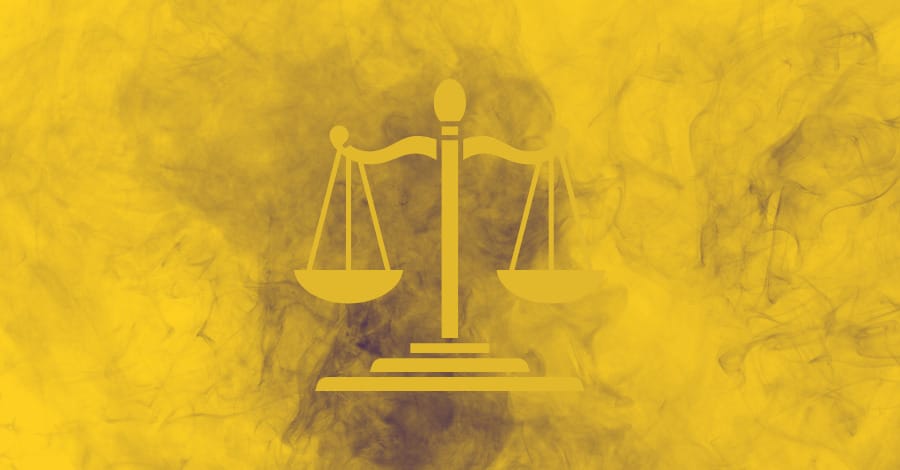
Too many people skip over this part. Ghost production involves several legal aspects and contracts that the ghost producer and the artist or label should consider. Failing to cover yourself legally can be catastrophic to your life and career.
Non-Disclosure Agreements (NDAs)
NDAs are commonly used in ghost production to protect the confidentiality of the work. It ensures that the ghost producer's identity, the nature of the collaboration, and any sensitive information or trade secrets involved remain confidential.
Work-for-Hire Agreements
A work-for-hire agreement is often used to define the ownership and copyright of the produced work. This agreement establishes that the artist or label is the rightful owner of the track, including the composition, sound recording, and any associated rights. In this agreement, the ghost producer relinquishes all rights to the work in exchange for a one-time payment or other agreed-upon compensation.
Royalty Splits and Payments
A contract should clearly define the financial arrangement between the ghost producer and the artist or label. This includes outlining the payment terms, whether a one-time fee or a percentage of future royalties and earnings. The contract should also specify how the parties' potential royalties or revenue from the track will be divided.
Credit and Attribution
The issue of proper credit and attribution is important in ghost production. Whether the ghost producer will receive public acknowledgment or credit for their work should be agreed upon. While ghost producers typically remain anonymous, some agreements may include a clause allowing the artist or label to disclose the involvement of the ghost producer under specific circumstances.
Legal Compliance
The ghost producer and the artist should ensure that the produced work complies with copyright laws, intellectual property rights, and other applicable legal requirements. Obtaining any necessary licenses, clearances, or permissions for samples, loops, or other copyrighted material used in the production process is essential.
Jurisdiction and Governing Law
Ghost production contracts should specify the jurisdiction and governing law that will apply in the event of a dispute or legal issue. This helps ensure both parties know the legal framework under which the agreement is enforced.
Specific legal aspects and contracts involved in ghost production may vary depending on the jurisdiction, the complexity of the project, and the negotiation between the people involved. Everyone involved in a contract discussion should seek legal advice or consult experienced professionals to protect their rights and interests.
The Art of Ghost Production

In many ways, ghost production resembles a collaboration. While a ghost producer takes the lead in the production process, they work closely with the artist to ensure that the final product aligns with the artist's artistic goals. The artist's feedback and input are vital throughout the process, and the ghost producer is a facilitator.
The creative process of a ghost producer involves several key stages that contribute to the development of a track. While the process may vary from producer to producer, the following steps provide a general overview:
- Understanding the Artist's Vision: The ghost producer starts by clearly understanding the artist's vision for the track. This involves open communication and discussions to gather information about the desired style, mood, and overall direction.
- Musical Composition: Once the artist's vision is clear, the ghost producer begins crafting the track's musical elements. This includes composing melodies, harmonies, and chord progressions that align with the desired genre and mood. The producer explores different musical ideas, experimenting with various sounds and arrangements.
- Sound Design and Production: After establishing the musical foundation, the ghost producer focuses on sound design and production techniques. They select and tweak sounds, create drum patterns, design unique textures, and apply effects to shape the overall sonic character of the track. Attention is given to creating a polished and professional sound.
- Arrangement and Structure: The ghost producer structures the track by arranging different sections, such as verses, choruses, bridges, and breakdowns. They carefully consider the composition's dynamics, transitions, and flow to maintain listener engagement throughout the track.
- Mixing and Mastering: The ghost producer applies mix techniques to ensure the track sounds balanced and cohesive. They adjust levels, and EQ and apply effects to enhance the individual elements and create a harmonious mix. After the mixing stage, the track is mastered to optimize its overall sound quality and prepare it for distribution.
- Feedback and Revisions: Throughout the process, the ghost producer seeks feedback from the artist. They incorporate revisions and adjustments based on the provided feedback to ensure that the track aligns with the artist's vision and expectations.
- Delivery: Once the track is finalized, the ghost producer delivers the finished product to the artist or label. At times, there may be ongoing collaboration during the process, where the artist provides additional input or guidance to refine the track further.
Where to Sell Your Skill as a Ghost Producer
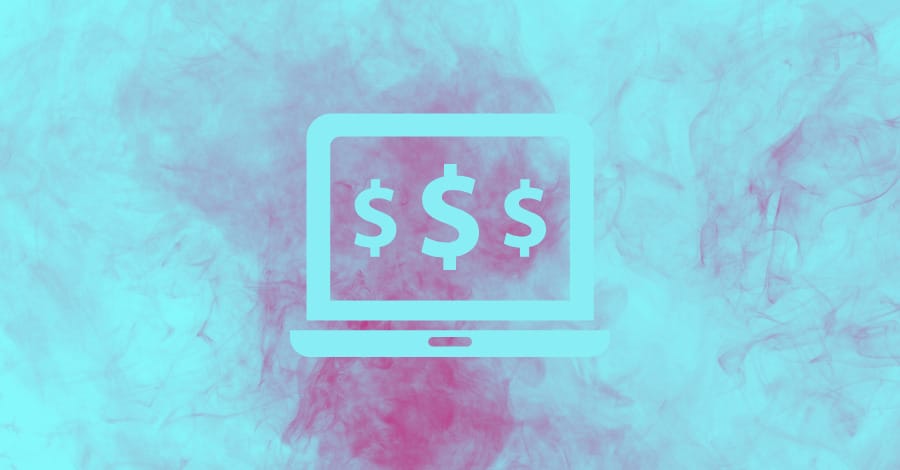
If you want to become a ghost producer, there are several online platforms and marketplaces where you can showcase your work and connect with potential clients. These platforms allow you to monetize your talent and gauge the commercial viability of your music.
Selling your skills as a ghost producer on these platforms provides an opportunity to earn income. It serves as a stepping stone towards building your reputation and expanding your network within the music industry. As you gain more experience and recognition, you may even find clients contacting you directly for your services.
EDM Ghost Producers
One popular marketplace specifically catering to EDM songs is EDMGhostProducers.com. This platform allows you to showcase your tracks and offer your production services to artists, DJs, and labels looking for high-quality music. It provides a dedicated space for buyers and sellers in the electronic dance music industry, making it a great platform to reach your target audience.
EDMJobs
Another valuable resource is EDMJobs, which features job listings and opportunities for ghost producers. This platform connects music professionals with potential clients, offering a range of freelance and project-based opportunities. It's a useful platform for finding clients who are actively seeking ghost production services.
Soundbetter
Soundbetter is another notable platform that caters to a wide range of music production services, including ghost production. You can create a profile showcasing your skills, credits, and portfolio here. Clients looking for ghost producers can browse profiles and hire professionals based on their requirements.
Fiverr
Fiverr is mostly known as a general marketplace for finding freelance work. However, you can sell your skills as a ghost producer here too. Millions of users on this platform are actively seeking people to work with. You can even make custom packages that can attract more people to hire you.
Upwork
While Upwork is similar to Fiverr, you shouldn’t count this marketplace out as a potential spot to get ghost production work. Upwork’s interface is simple and user-friendly, offering features like job proposals, milestone-based payments, and secure messaging.
The Future of Ghost Music Production

The future holds exciting possibilities as emerging trends and technological advancements shape the music industry. One significant development is the potential impact of technology on the ghost production process.
Artificial Intelligence (AI) tools are becoming integrated into music and offering new creative possibilities for producers.
One example is an AI-powered vocal processing tool that can transform recorded vocals to sound like a known pop star. Want to sound like Taylor Swift or Drake? Now you can! Tools like these open new creative avenues for ghost producers to create interesting art.
Another noteworthy technology is the Magenta DDSP (Differentiable Digital Signal Processing) project. This tool uses machine learning techniques to analyze and manipulate audio signals, allowing producers to modify the sound characteristics of an instrument or voice.
In Magenta DDSP, ghost producers can take any sound and make it sound like another instrument. Say you have a melody stuck in your head that would sound great as a saxophone.
If you record yourself singing this melody and put it into Magenta, this tool will make you sound like a sax! The Magenta DDSP technology empowers ghost producers to experiment with different timbres and textures, pushing the boundaries of their creative expression.
AI tools in ghost music production will likely revolutionize the industry and enable ghost producers to produce high-quality music more efficiently and creatively. However, it's important to balance AI’s convenience and efficiency with the human touch that makes music production unique.
The future of ghost music production will likely involve a synergistic relationship between AI tools and human creativity, leveraging technology to enhance and augment the artistic process.
The Final Thoughts on Ghost Production
Ghost production plays a significant role in the music industry, providing a platform for collaboration, creativity, and the realization of artistic visions. While it may be controversial, ghost production has become more widely accepted and recognized as a legitimate practice.
Ultimately, the future of ghost production lies in striking a balance between artistic collaboration, technological advancements, and maintaining the authenticity and creativity that make music so captivating.
If becoming a ghost producer is your vision, create a few tracks showcasing your skills and producer style. These tracks should be of high quality and in line with the current trends in the specific music genre you’re going for.
Share your music on social media and audio platforms like SoundCloud. Start networking with DJs, producers, and music industry professionals by attending music conferences, events, and festivals. Join online communities or forums. Keep practicing your craft and constantly develop your skills.
Happy producing!
These Might Also Interest You:
15+ Ways to Find Singers Online For Your Next Track
Jobs In The Music Industry: 9 Case Studies To Grow Your Career
Making Money In Music: How Artists Can Create Multiple Income Streams



